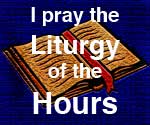Last night I finished My Life with the Saints by James Martin. Overall, it's a wonderful book and I would recommend it for everyone to read, especially if you would like to learn more about individual saints or if you enjoy heartwarming stories of an individual person's journey. Father Martin guides us through his life from Childhood to becoming a Jesuit in which he applies specific moments of his life to his learning about, praying to, and being inspired by various saints. Each chapter will deliver a small section of his life along with an introduction to a saint. A brief summary of that saint's life is presented, allowing the reader to learn at least the basics if they have no historical background for the individual.
I can imagine one complaint that some people will have about the book, although it did not bother me at all. Father Martin includes individuals that have not yet been officially canonized yet, such as Mother Theresa. Also, because there seems to be such an anti-Jesuit bias floating around conservatives these days, I can see people nit-picking points to attack the book. Therefore, if you are a "Saint purist" or a "Jesuit-basher", I'd probably steer clear of the book, although most of the problems will just be in your imagination, in my opinion.
I just have two simple critiques of the book. First, at times the flow of the book seems a little off. It almost seems as though he jumps around different parts of his life and it can be hard to follow. I'm sure this is a twofold problem; 1) No one is introduced to a saint at one particular second in time and that's all, it overlaps all of his life, and 2) I am not so familiar with the training of a religious brother, so at times it was my ignorance of the various stages of religious formation he was talking about which confused me. Finally, the one major thing that bothered me about the book was in his chapter on Mary, where he invites a Catholic to attend who has not been to mass in quite some time (at least that is what you gather) but then seems happy that he goes up and takes communion without the sacrament of reconciliation. I even admit myself that I could be nitpicking here, I'm just suggesting that I didn't like the way that particular story was presented. In real life, he could have gone to reconciliation before or after (with the intent at mass), etc. Other than these minor issues, it is an excellent and uplifting book overall.
PODCAzT 186 – Voices of the Fathers 01 – The Scillitan Martyrs
-
I was recently going through some old books and found a slim volume
entitled The Osterley Selection from the Latin Fathers, edited by Joseph
Crehan of Heyt...
18 hours ago



No comments:
Post a Comment